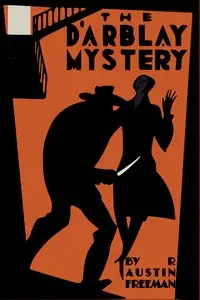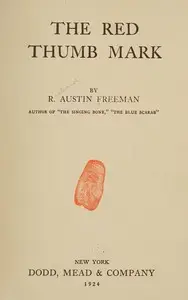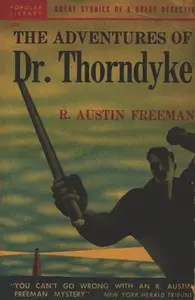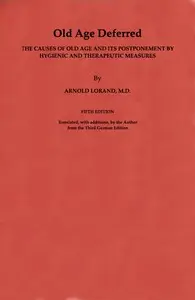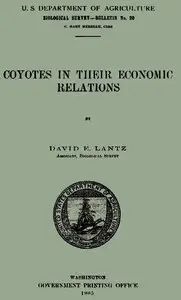"John Thorndyke's Cases" by R. Austin Freeman is a collection of detective stories written in the early 20th century. This book introduces the main character, Dr. John Thorndyke, a medico-legal expert, who employs scientific methods and keen observations to solve various crimes, blending elements of mystery with real forensic techniques. The opening of the book sets a vivid scene in the lonely village of Little Sundersley, where Dr. Christopher Jervis, our narrator, embarks on a quiet seaside practice as Thorndyke arrives for a visit. Their leisurely beach stroll quickly turns into an investigation when they encounter a series of peculiar footprints that hint at foul play, leading to the discovery of a murder victim on the beach. As they analyze the footprints and other evidence around the body, the opening unfolds a complex narrative that introduces the themes of scientific inquiry and deductive reasoning, setting the stage for the thrilling mysteries to follow. (This is an automatically generated summary.)
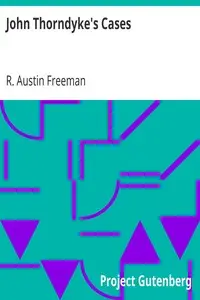
John Thorndyke's Cases related by Christopher Jervis and edited by R. Austin Freeman
By R. Austin (Richard Austin) Freeman
With 6 illustrations by H. M. Brock, and 9 from photographs, etc.
Genres
Released
2004-10-27
Formats
epub
mobi
epub (images)
epub3 (images)
mobi (images)
Free Download
Overview
About the Author
Dr. Richard Austin Freeman was a British writer of detective stories, mostly featuring the medico-legal forensic investigator Dr. Thorndyke. He invented the inverted detective story. This invention has been described as Freeman's most notable contribution to detective fiction. Freeman used some of his early experiences as a colonial surgeon in his novels. Many of the Dr. Thorndyke stories involve genuine, but sometimes arcane, points of scientific knowledge, from areas such as tropical medicine, metallurgy and toxicology.
Total Reviews
10.0k
Total reviews from Goodreads may change

